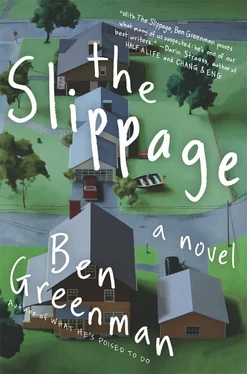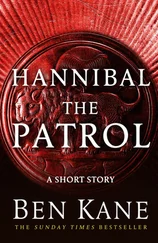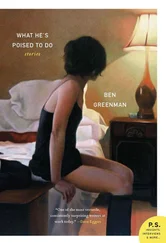“Okay,” Christopher said.
“We are going to see a master criminal of our time,” William said.
“Okay,” Christopher said.
They joined a knot of people at the base of the courthouse steps, at first only about a dozen, but then twice that, and then they were at the center of a lake whose shore was receding. The first police car that pulled up discharged a young black man, who passed the crowd without incident. The second contained Lareaux.
The gunshot had winged him in the left arm, and he wore a sling, which made him easy to spot. He was escorted by a policewoman toward the crowd, and voices went up as he approached: jeering voices, scornful voices, but also curious ones. “Why did you do it?” one woman said. Her tone had an unimaginable innocence.
Lareaux wore glasses in life, but they had been taken from him, and he stared obtusely into the crowd with sad, far-wandering eyes. “I have a political agenda,” he said. “Those who think they are in power must be taught otherwise. We are too beholden to self-appointed masters. We must tear them down.” The papers had uncovered their own rationale: Lareaux had a grown son who had been in and out of mental facilities his whole life; he had worked at four of the sites and been fired from three of them. The names of his son’s former supervisors were neatly lettered beneath the photographs on his wall.
A man from the rear of the crowd ran out and tried to shove Lareaux. “I had a friend you almost killed,” he said. “If he’d been on time to work, who knows what would have happened?” Someone else flung a paper cup filled with ice at Lareaux’s head. Then, suddenly, a section of the crowd surged forward. William was jostled. He caught sight of Christopher taking an elbow from a big man bumped by an even bigger one; the boy went down into the middle of the lake of people. A young woman, also teetering, stepped on Christopher’s hand, and William heard him cry out in pain. When a space opened up, Christopher was gone.
The woman who had stepped on him was following Lareaux up the courthouse stairs, yelling now. William went up the steps too. He tried to get an elevated vantage. He looked at his side of the street, at the other side. He checked both corners. Christopher was nowhere to be found. William called his name and waved, first one hand and then both, already imagining the news report: the missing boy had been in the company of his mother’s friend, who was unemployed as a result of a workplace assault.
Lareaux was inside now, and the people who remained on the stairs were yelling at each other. William paced from one edge of the courthouse to the other until he saw Christopher, or at least a spot that was the same deep green as his shirt, sitting on a bench far down the block.
He hurried over.
“I didn’t know where you went,” Christopher said, his voice thin with panic.
“I didn’t go anywhere,” William said. “You did.”
“Not my fault,” Christopher said. He was pressing his right thumb into the center of his left palm. William moved it aside and found a deep bruise. The ridge of the palm was swollen. “It’s fine,” Christopher said, trying to hide the hand behind his back.
“We should get it X-rayed to make sure it’s not broken.”
“But it’ll be okay?”
“What do you think?” William said, but he was asking, not telling, and he could see that Christopher could see that. And so William said yes. When they pulled up in front of the house, Christopher said nothing, just took his backpack with his good hand and dragged it behind him up the front path.
Tom came over that night, unannounced, the anger of the previous week evaporated, and joined William and Louisa in front of the television for what they all knew was the end of the line, in a sense. They ordered food and watched footage of the courthouse riot, and Tom said he thought he saw William, and William said he hadn’t even gotten out of his car, and Louisa said he should have gotten as close as possible, that things like that didn’t happen every day, and then the news was on to sports, and Louisa switched off the set and started picking up plates, and Tom left, and the two of them sat there in silence and William watched his wife, wondering what would happen next.
Karla called for lunch. “Tomorrow,” she said crisply, not quite asking. When William arrived at the restaurant, she was sitting, menu already closed.
He started in with something he had just heard. “My old company is about to take a fall.” Fitch had called him early that morning from the stairwell at work, breathless in his act of espionage, and brought him up to date. “The new salesman was sent back to San Diego without an explanation,” William told Karla. “Independent consultants have been to the offices at least twice, guys in dark suits who look like Secret Service and don’t talk much to anyone. Apparently, the company made false and misleading statements regarding their investment properties and didn’t vet investors properly. And that’s not even the worst of it. The worst of it is, there’s a paper trail.”
“Business, even immoral business, is distinguished from casual deception by the presence of records. My father used to say that all the time.”
“That’s a big thing to say all the time.”
She didn’t smile, not even a little. She fingered the collar of her blouse. “What were you thinking, William?” she said finally.
“About what?”
“About yesterday. A child in a mob scene like that?” She leaned forward, hands up underneath the tabletop as if she was weighing it.
“I’m sorry,” he said.
“I’m sure you are.” She kept her eyes on him. “I’m just not sure it matters.”
“How’s his hand?”
“It’s okay. Soft cast. He can’t really eat or write, which is going to make it a rough week.” She put her head down. When she looked up, her eyes were wet. “I don’t think you should spend any more time with Chris.”
He slid his hand across the table, but Karla stiffened. “Stop,” she said. “I think partly I was using you to spend time with him so that I wouldn’t have to. As he gets older, I get more worried that I can’t do this alone. I can’t worry about that anymore.”
“That doesn’t mean I can’t help out now and then.”
“It does,” she said. “You’re not his father.”
“But this isn’t fair to him.”
“It’s not fair for him if you stick around this way,” she said. “This is something I mismanaged. Let’s change the subject.”
“There’s nothing to change it to.”
“Well, then we’re done here.”
William paid, desperately, as Karla stayed at the table. Her tears were already over. He walked her out to her car, and she got into the driver’s seat and put on her sunglasses. “You know you’ll have to forgive me,” he said.
“It’s not about me,” she said. “Also, you know that thing you did where you told Chris you knew his father?”
“Yes?”
She shook her head and said nothing, with an expression that made it look like there was nothing more to say.
At home, William went into the junk room and looked through pictures of Lareaux’s arraignment. One of them had been taken as Lareaux stepped out of his car in front of the courthouse. All the drama was in the right half of the frame, while the left was clotted with a disorganized mass of courthouse visitors, some fixed on the source of the tumult, others occupied with other business. At the leftmost edge of the photo, William spotted himself, with his arm around Christopher, coming through the fringe of the crowd. He printed a copy of the picture, folded it up, and put it at the bottom of the drawer of his bedside table.
Читать дальше












